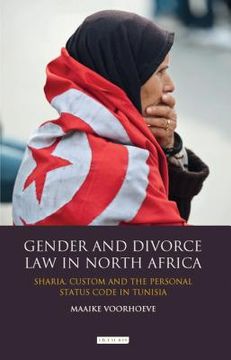Gender and Divorce Law in North Africa: Sharia, Custom and the Personal Status Code in Tunisia (in English)
Synopsis "Gender and Divorce Law in North Africa: Sharia, Custom and the Personal Status Code in Tunisia (in English)"
Personal status laws remain a highly politicized area of debate in the Middle East, as the arena in which the contentious issues of women's rights, religion and minority groups meet. This is especially so when it comes to divorce. In Tunisia, with the moderate Islamist party Ennahda winning the first elections following the 2011 revolution, questions of religion in public life have gained greater primacy. The country is often hailed for its progressive personal status code, seen as an exception to the practice in many other Muslim countries. Polygamy is banned, for example, and in divorce cases there is gender equality. However, Tunisia's legal system contains many gaps and leaves much room for interpretation. Bearing in mind this importance of the role of Islam in judicial courts, Maaike Voorhoeve investigates whether the more progressive, and ostensibly secular, principles enshrined in Tunisia's Personal Status Code of 1956 are in fact adhered to in divorce cases. And if not, whether judges frequently turn to the Sharia, custom or societal norms as their primary sources of guidance.Through extensive research in the Tunisian courts, Voorhoeve investigates the different types of divorce, the arguments presented to the court and the consequent legal decisions made. She focuses on the role of female judges, testing the assumption that they adjudicate in a more gender-neutral way and examining the impact they have had on Tunisian legal culture and through this, Tunisian society. Gender and Divorce Law in North Africa therefore sheds light on the wide-reaching debate throughout North Africa and the Middle East concerning the role of Islam and Sharia in the public, political, legal and private spheres. This debate, which often pits secularists against Islamists, but is in reality much more nuanced, is key in a variety of fields, including Middle East studies and Islamic law.

